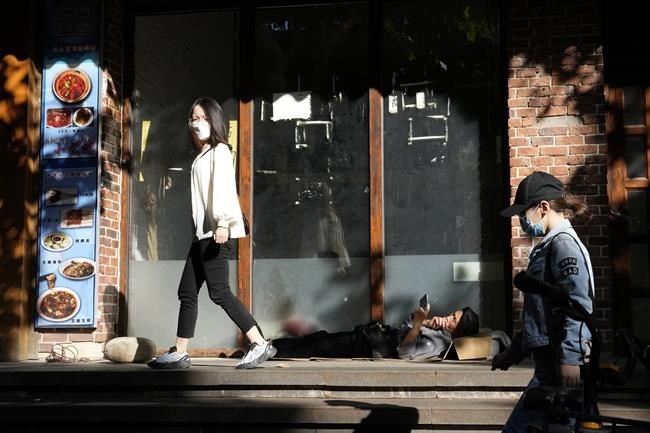BEIJING (AP) — China saw a major dip in travel over the past week’s National Day vacation. People staying home appeared to have chosen the cinema instead, with a patriotic Korean War film taking in more than 3.45 billion yuan ($535 million) at the box office.
The official Xinhua News Agency reported that over the seven-day holiday beginning Oct. 1, China saw 515 million trips taken, just over 70% during the same period last year before the coronavirus outbreak spurred travel restrictions and demands for testing, vaccinations and quarantines.
Spending appeared to have bounced back, however, with tourists splashing out 389 billion yuan ($60 billion) during the holiday, up almost 60% from last year, Xinhua reported, citing figures from the Ministry of Culture and Tourism.
Such figures are closely watched as China seeks to shift its economic model away from real estate and infrastructure investment to one more focused on services and consumption.
China became the world's largest box office last year as it reopened theaters and other entertainment venues while the U.S. and other developed economies were still struggling to contain the coronavirus pandemic.
The government maintains tight control over what films can be shown and enforces an unofficial ban on foreign productions during national holidays, when it seeks to promote domestic releases praising the ruling Communist Party.
Under the title “The Battle at Lake Changjin," the holiday's box office champion tells the story of Chinese troops battling U.S. soldiers during the 1950-53 Korean War.
The episode is known in the U.S. as the Battle of Chosin Reservoir, during which U.S.-led United Nations troops fought their way out of an encirclement amid freezing weather by Chinese forces who had entered the conflict earlier that year in aid of their North Korean allies.
China hails the conflict, in which U.N. and Chinese forces fought to a standstill that continues to divide the Korean Peninsula, as a patriotic national struggle termed the “War to Resist US Aggression and Aid Korea."
The Associated Press


